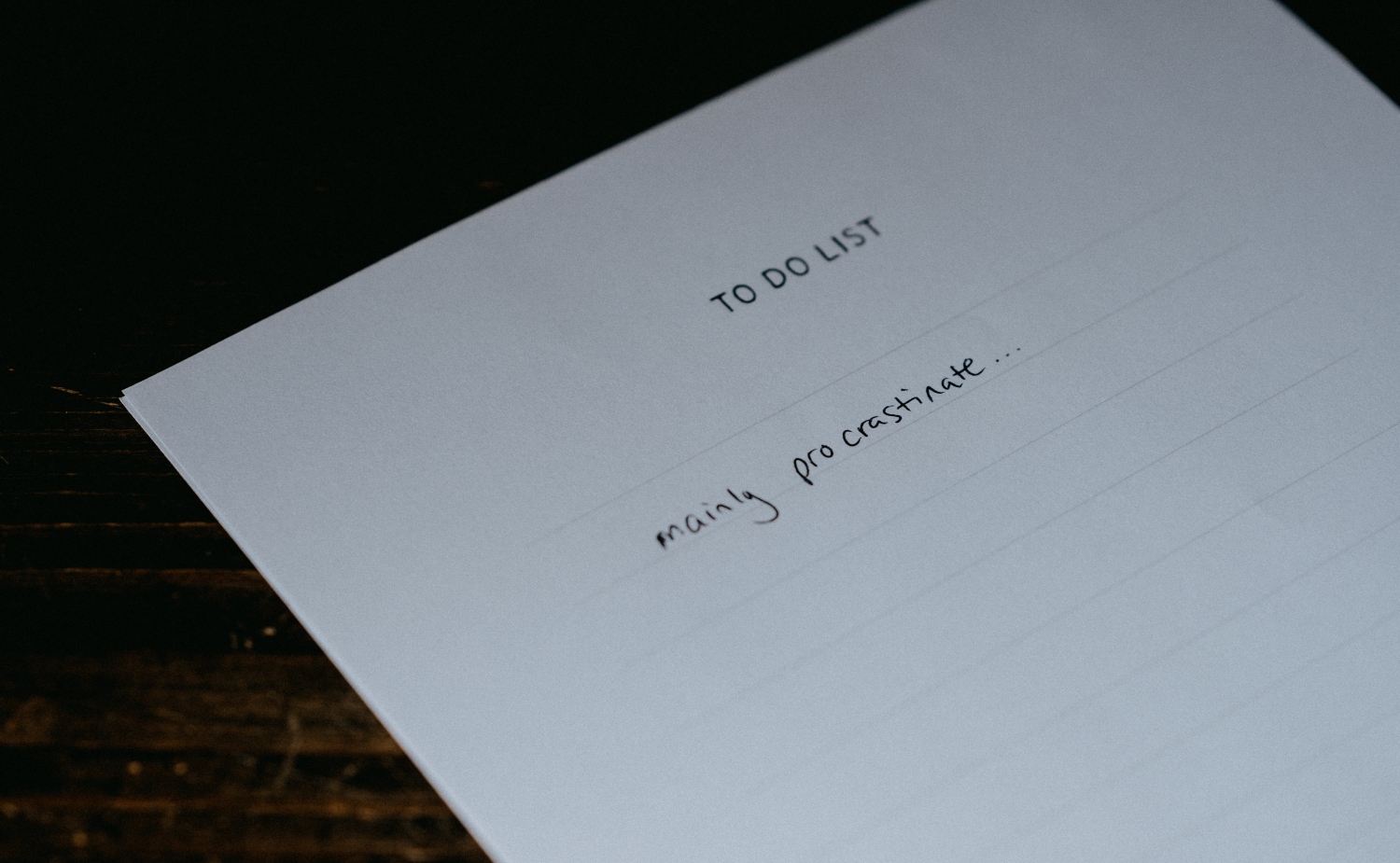Text Sarah Scheid
‘I can do this tomorrow.’ Everyone knows this thought when unpleasant tasks come up. When tasks are increasingly postponed, it can push us into the ‘circle of procrastination’. To break out, psychologist Martijn van der Spoel has prepared a masterclass Procrastination to help students recognise procrastination and actively tackle it. Student editor Sarah Scheid was one of the students and collected five tips for us.
1. Switch off bad feelings
‘The first step, starting a task, is the hardest’, says Van der Spoel. ‘If you don’t have the energy to start, or you think: ‘I will start working when I feel good’, just switch off those feelings for five to ten minutes when you start a task. Don’t dwell on your feelings or mood about studying at that moment. If you say to yourself: ‘I will start studying at 9 o’clock’, and it’s 9 o’clock, just start.’
Van der Spoel knows what he is talking about: ‘Sometimes, especially on Saturday mornings, I don’t feel like starting a task. Then I force myself to start, and it works.’ Force yourself for a short period of time and see what forcing yourself does to help you get to the next level.’
2. Build a routine
Try to build up a routine; it makes it easier for the brain to do the expected work. If you have to think about every single step, you get tired. Van der Spoel: ‘The first time I drove home from a class, it was super exhausting. Driving home when I am tired is easier for the brain when it is a routine. It takes less energy.’
3. Account a person to check
Ask someone to help you. Hold a friend or a family member accountable; just someone you trust and respect to ask if you did what you said you would do. ‘If you tell someone: ’I want to exercise twice a week’, you are more likely to do it if you remember that I told a friend I would do it, and he will ask you if you have done it’, says Van der Spoel.
4. Know what to do
Start with a clear and simple task. Know what you are going to do for the next few hours. If you think: ‘Tomorrow, I can pick up something that is in my head that I can continue with’, you have a clear structure, and it is easier to get started. The taste of success is incredibly important. ‘When you try something, and it works, your brain gets energy and is charged’, Van der Spoel explains.
5. Search for help
When people have a low self-worth level, they are also insecure. They start to struggle with their self-confidence and often don’t know how to change it. Van der Spoel: ‘If you think ‘I should get a good grade in this subject’, you build up pressure. You become afraid of that pressure and postpone studying. The evening before the exam, the pain of not starting is overtaken by the pain of getting a zero. Then you work hard and only get an average grade. Afterwards, you think that was to be expected because you started too late. The self-worth and the idea of who you are as a person becomes so negative that you can’t do the right thing at the right time. You become your own enemy.’
Procrastination controlled by emotions like this, requires a different approach, says Van der Spoel. The Student Training and Support, including the student psychologists, are then very happy to help you.
No tips
Disclaimer: Van der Spoel: ‘Some students say: ‘Just give me the tips, and I will do it’, but that’s not the key to my message. My main goal is for students to start thinking: ‘What fits for me and how do I do this?’

 Photo Unsplash/Annie Spratt
Photo Unsplash/Annie Spratt 
